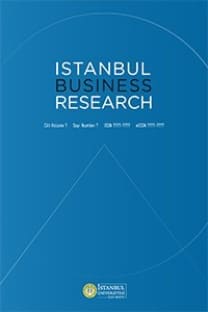Tarih lokomotifi
Bu çalışma, bir anakütlenin/grubun geleceği ile ilgili olarak nasıl hissettiğine, ki buna sosyal ruh hali denir, ve bu ruh halinin her türden kollektif vakaya ne şekilde tesir ettiğine odaklanmaktadır. Giyim tarzına ilişkin eğilimlerden dünya güçlerinin çöküşüne dek uzanan çok çeşitli örnekler üzerinden giderek makale, sosyal ruh halinin tüm zaman ölçeklerinde görmeyi bekleyeceğimiz olgu çeşitlerini çarpıcı biçimde etkilediğini göstermektedir. Bu görüş, finansal pazar fiyatı hareketlerinin sosyal ruh halini ölçmek üzere tüm zaman ölçeklerinde iyi bir ―sosyometre‖ olarak hizmet ettiğini de önerecek şekilde geliştirilmiştir. Tüm bunlara ek olarak bu çalışmada, vakalardan ruh haline neredeyse hiç geri bildirim olmadığını destekleyen görüşler sunuyoruz; yani, ruh halinin hiçbir tür ―dış güç‖ etkisiyle belirlenmediğini, tamamıyla anakütleye özgü bir içsel değişken olduğunu ileri sürüyoruz. Çalışma, burada geliştirilen hipotezlerin kollektif insan davranışına ilişkin tam teşekküllü bilimsel bir teoriye dönüştürülmesine hizmet edecek bir araştırma programının sunulması ile sonuçlanmaktadır.
Anahtar Kelimeler:
Sosyal Ruh Hali, Sosyonomi, Sosyometre, Grup Psikolojisi, Eğilimlerde Dönüm Noktaları
The engine of history
How a population/group feels about its future, its so-called ―social mood‖, and how that mood biases collective events of all types is the focus of this article. Through a variety of examples running from trends in clothing styles to the collapse of world powers, the paper argues that the social mood dramatically influences the types of events we can expect to see on all time scales. The argument is advanced that the financial market price movements serve as a good ―sociometer‖ for measuring the social mood on all time scales. Additionally, we present arguments showing that there is virtually no feedback from events to mood; that is, the mood is endogeneous to the population and is not determined by any sort of ―outside forces‖. Finally, the paper concludes with a research program for turning the hypotheses advanced here into a full-fledged scientific theory of collective human behavior.
Keywords:
Social Mood, Socionomics, Sociometer, Group Psychology, Turning Points of Trends,
- Yayın Aralığı: Yılda 3 Sayı
- Başlangıç: 2013
- Yayıncı: İstanbul Üniversitesi Yayınevi
Sayıdaki Diğer Makaleler
Diferansiyel denklemler kullanarak meme kanserinin istatistik modellemesi
Tahmin çıktıları ile ekonomik modelleri değerlendirmeme üzerine
Örnekleme maliyetinin minimizasyonu problemine yönelik bir kuadratik programlama yaklaşımı
Eylem DENİZ, Hamparsum BOZDOGAN, Suman KATRAGADDA
J. CHEN, Gail DAVİS, Marilyn GRAVETT, Mary WALSH, Anthony COMERATA, Dennis WOJNAROWSKİ
